Green Party, SNP and Plaid Cymru urge TV debates rethink
- Published
TV election debates: Greens, SNP and Plaid demands
The Green Party, Plaid Cymru and the SNP have written to the BBC asking to be included in the televised debates ahead of the May's general election.
In a joint letter to the BBC Trust, they called for the debates to reflect the "support enjoyed by other parties".
The three parties were not included in the three debates jointly proposed by the BBC, Sky, ITV and Channel 4.
The BBC has said "strong and clear-cut" evidence of electoral support was behind the broadcasters' plans.
The suggested schedule is for debates on 2 April, 16 April and 30 April, ahead of the election on 7 May.
UK Independence Party leader Nigel Farage has been invited to take part in one of the debates with Conservative Prime Minister David Cameron, Labour leader Ed Miliband and Nick Clegg for the Lib Dems.
When they announced their plans last month, the broadcasters said the proposed formats reflected "changes in the political landscape" since the three prime ministerial debates during the 2010 general election, which featured Mr Cameron, Mr Clegg and Labour's Gordon Brown.

The proposals:
One head-to-head debate between the "two leaders who could become prime minister", Mr Cameron and Labour's Ed Miliband, on Sky and Channel 4 and chaired by Jeremy Paxman
Another, also to include the Liberal Democrat leader, to be hosted by David Dimbleby, on BBC TV, radio and online
Another debate, on ITV and chaired by Julie Etchingham, featuring the leaders of the Conservatives, Labour, Liberal Democrats and UK Independence Party

In the letter to BBC Trust chair Rona Fairhead, also signed by some crossbench peers and Labour MP Paul Flynn, the politicians said there was "clear public support for broadening out the debates".
More than 200,000 people had signed a petition , externalcalling for the Greens to be included, they said, adding that support for the SNP was at "record levels" and Plaid Cymru had had MPs in the Commons since 1966.
The BBC's public service remit makes a "clear case for wider representation", they argued.
Green Party MP Caroline Lucas told the BBC's Daily Politics she wanted "transparency" in the criteria for choosing which parties would be invited.
"I am not trying to say we're doing better than UKIP, I'm trying to say that there should be a role for the Green Party," she added.
Green MP Caroline Lucas says the criteria for deciding which political leaders should be in the 2105 TV general election debate keep changing, were not clear and very backward-looking
Labour MP and former Culture Secretary Ben Bradshaw said she "may well have a point" but added: "You shouldn't underestimate the difficulty that the broadcasters, not just the BBC... will have had themselves in agreeing a format or a cast list."
The BBC is holding a public consultation on its coverage in the lead-up to next year's general election.
In a letter to the Green Party earlier this month, Ric Bailey, the BBC's chief political adviser, said UKIP had demonstrated a "substantial increase in electoral support" since 2010, while the Greens had not shown "any comparable increase".
He said "appropriate opportunities" would be offered to the other parties in the course of the BBC's coverage, "to ensure that the BBC's election coverage does satisfy the overarching obligation of due impartiality across the UK".
- Published10 November 2014
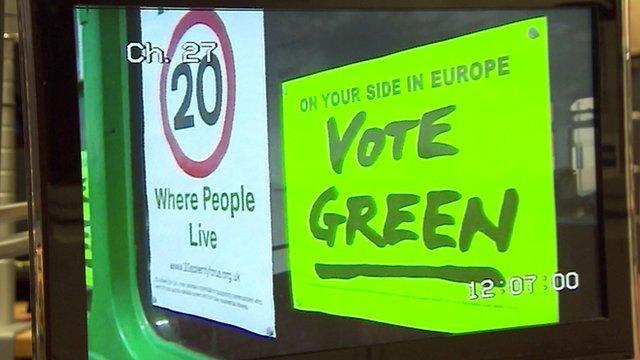
- Published13 October 2014
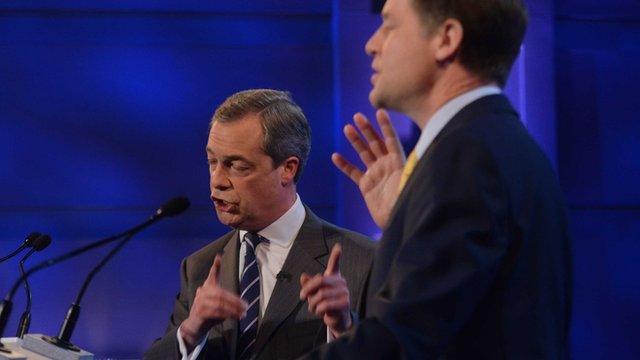
- Published4 August 2014
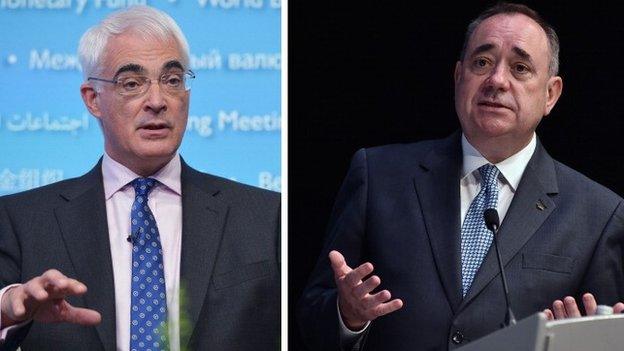
- Published9 May 2014
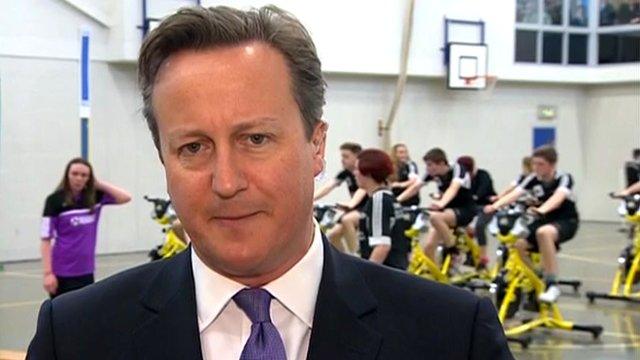
- Published23 September 2014
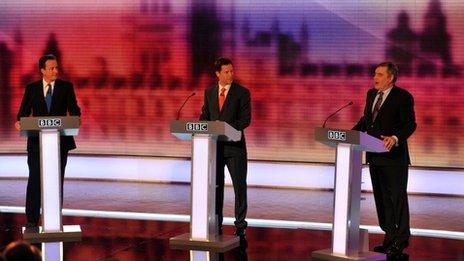
- Published15 May 2014
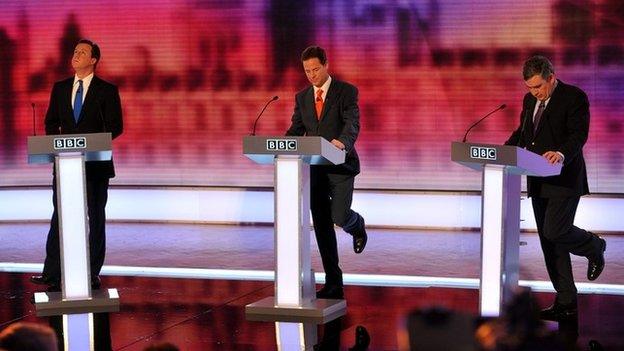
- Published3 April 2014
